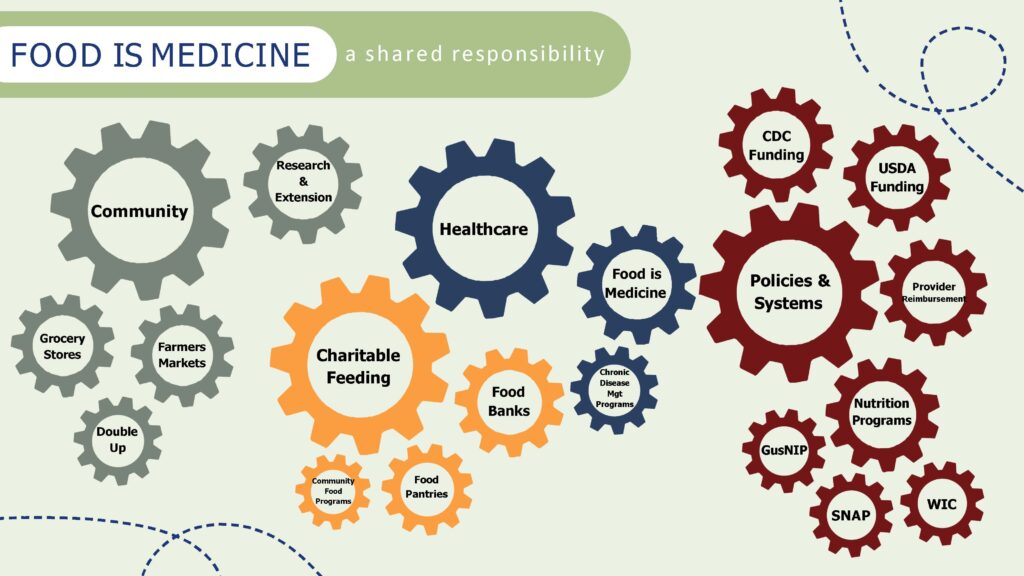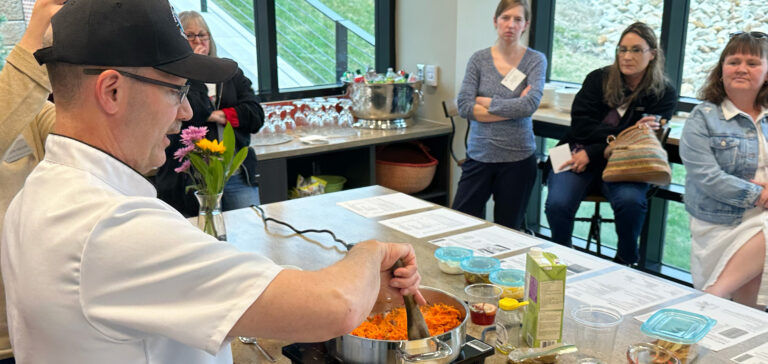Clinics, experts share Food is Medicine updates, successes, challenges
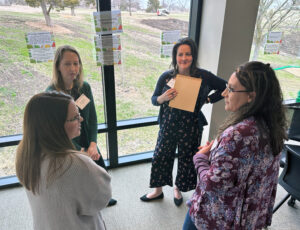 Less than a year after hosting its first Food is Medicine Learning Collaborative, where it joined a group of Kansas health clinics in launching a program focused on the critical role nutrition plays in preventing, treating and managing chronic disease, Sunflower Foundation recently brought its program partners, experts in the field and key stakeholders together for yet another opportunity to learn about how dietary intervention can improve patients’ health outcomes.
Less than a year after hosting its first Food is Medicine Learning Collaborative, where it joined a group of Kansas health clinics in launching a program focused on the critical role nutrition plays in preventing, treating and managing chronic disease, Sunflower Foundation recently brought its program partners, experts in the field and key stakeholders together for yet another opportunity to learn about how dietary intervention can improve patients’ health outcomes.
The second Food is Medicine Learning Collaborative, held in late March at the Sunflower Nonprofit Center, once again brought the six Federally Qualified Health Clinics (FQHCs) in Kansas that are participating in the FIM program together with the state’s food banks and experts in the FIM movement for an opportunity share and learn from one another as the clinics continue to navigate the early stages of implementing the program.
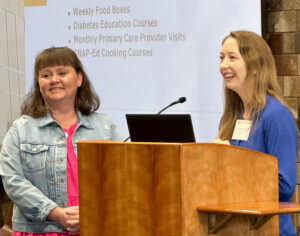 Heartland Community Health Center in Lawrence, Genesis Family Health in Dodge City, Community Health Center of Southeast Kansas in Pittsburg, Hoxie Medical Clinic in Hoxie, Health Ministries Clinic in Newton and HealthCore Clinic in Wichita shared updates on their successes and challenges during the Food is Medicine implementation process. Clinic partners also spoke about how providers, staff and patients have received and engaged with the program, and how the clinics are working closely with Kansas Food Bank and Harvesters – The Community Food Network and other local and regional sources to procure additional food supplies.
Heartland Community Health Center in Lawrence, Genesis Family Health in Dodge City, Community Health Center of Southeast Kansas in Pittsburg, Hoxie Medical Clinic in Hoxie, Health Ministries Clinic in Newton and HealthCore Clinic in Wichita shared updates on their successes and challenges during the Food is Medicine implementation process. Clinic partners also spoke about how providers, staff and patients have received and engaged with the program, and how the clinics are working closely with Kansas Food Bank and Harvesters – The Community Food Network and other local and regional sources to procure additional food supplies.
Each clinic is targeting patients living with diabetes, providing healthy food options, such as medically tailored groceries, as well as wrap-around support services, such as SNAP-Ed cooking classes and other dietary education.
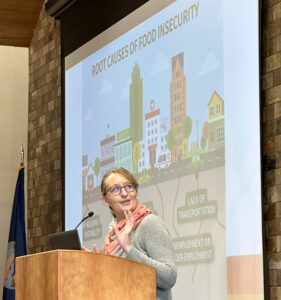 Sunflower’s FIM evaluation team – Kristina Bridges, PhD, from the University of Kansas Medical Center; Marianna Wetherill, PhD, MPH, RDN, of the University of Oklahoma Health Sciences Center; Susan Harvey, PhD, University of Kansas – also was on hand to provide an update on early implementation and efforts to collect data for evaluation of the FIM program.
Sunflower’s FIM evaluation team – Kristina Bridges, PhD, from the University of Kansas Medical Center; Marianna Wetherill, PhD, MPH, RDN, of the University of Oklahoma Health Sciences Center; Susan Harvey, PhD, University of Kansas – also was on hand to provide an update on early implementation and efforts to collect data for evaluation of the FIM program.
In addition to hearing from the health clinics and evaluation team, several national experts on Food is Medicine gave keynote presentations.
Dr. Hilary Seligman, MD, MAS, a professor at the University of California-San Francisco and a pioneer in Food is Medicine, spoke about the challenges community clinics face when implementing Food is Medicine programs, as well as the difference clinics can make in the health of their patients and communities.
Christopher Long, PhD, and Carmen Byker Shanks, PhD, both research scientists at the Gretchen Swanson Center for Nutrition in Omaha, Neb., provided national perspectives and case studies on the effectiveness of Food is Medicine and spoke about where Kansas fit into the FIM movement.
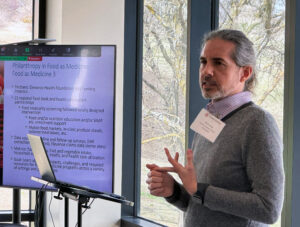 The foundation welcomed back Trina Ragain, MSPH, another Food is Medicine pioneer who spoke at the first learning collaborative in August 2022. Ragain, owner of Eccentricity Consulting, LLC, a company committed to advancing health equity through disruptive innovation, previously served as chief innovation officer at Operation Food Search, a St. Louis nonprofit dedicated to hunger relief. There, she developed Fresh Rx: Nourishing Healthy Starts, which focuses on improving birth outcomes for food insecure pregnant women and their babies.
The foundation welcomed back Trina Ragain, MSPH, another Food is Medicine pioneer who spoke at the first learning collaborative in August 2022. Ragain, owner of Eccentricity Consulting, LLC, a company committed to advancing health equity through disruptive innovation, previously served as chief innovation officer at Operation Food Search, a St. Louis nonprofit dedicated to hunger relief. There, she developed Fresh Rx: Nourishing Healthy Starts, which focuses on improving birth outcomes for food insecure pregnant women and their babies.
Ragain’s presentation this time focused on national policy, strategies and potential funding for Food is Medicine initiatives, including insights into the Biden Administration’s National Strategy on Hunger, Nutrition and Health.
And finally, Dr. Wetherill, FIM evaluation team member, provided an update on the Aspen Institute’s Food is Medicine Research Action Plan.
Photos
Videos
Playlist
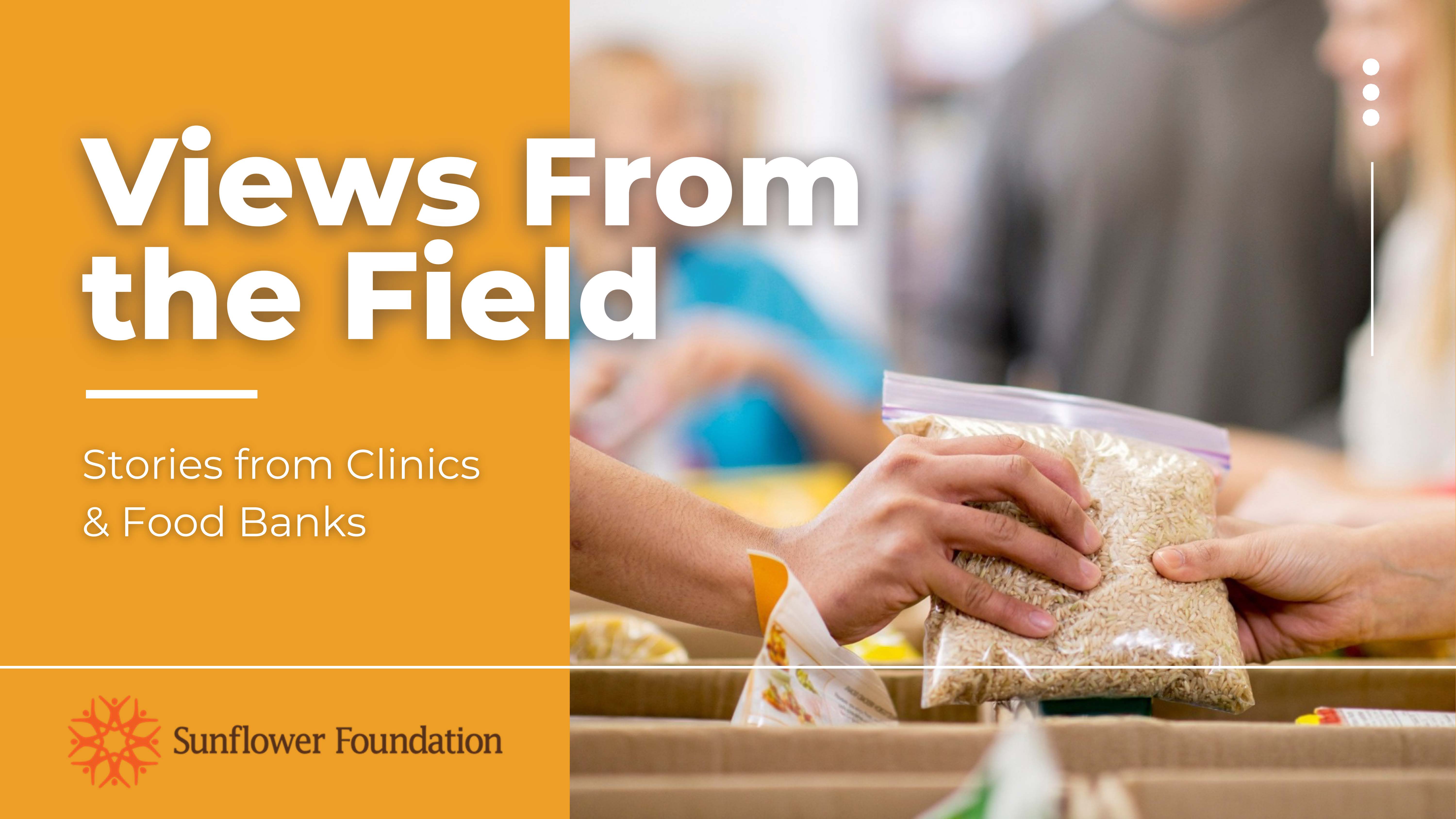
1:08.52

0:31.51
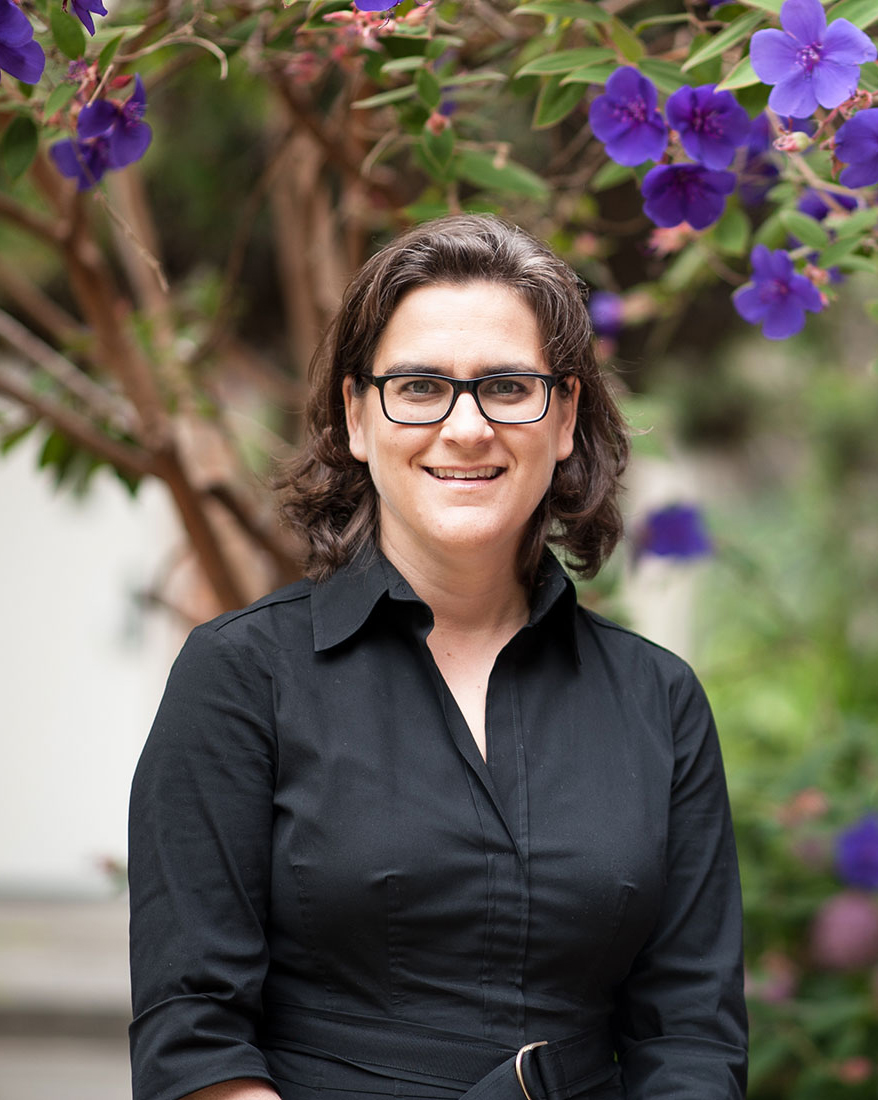
0:55.02
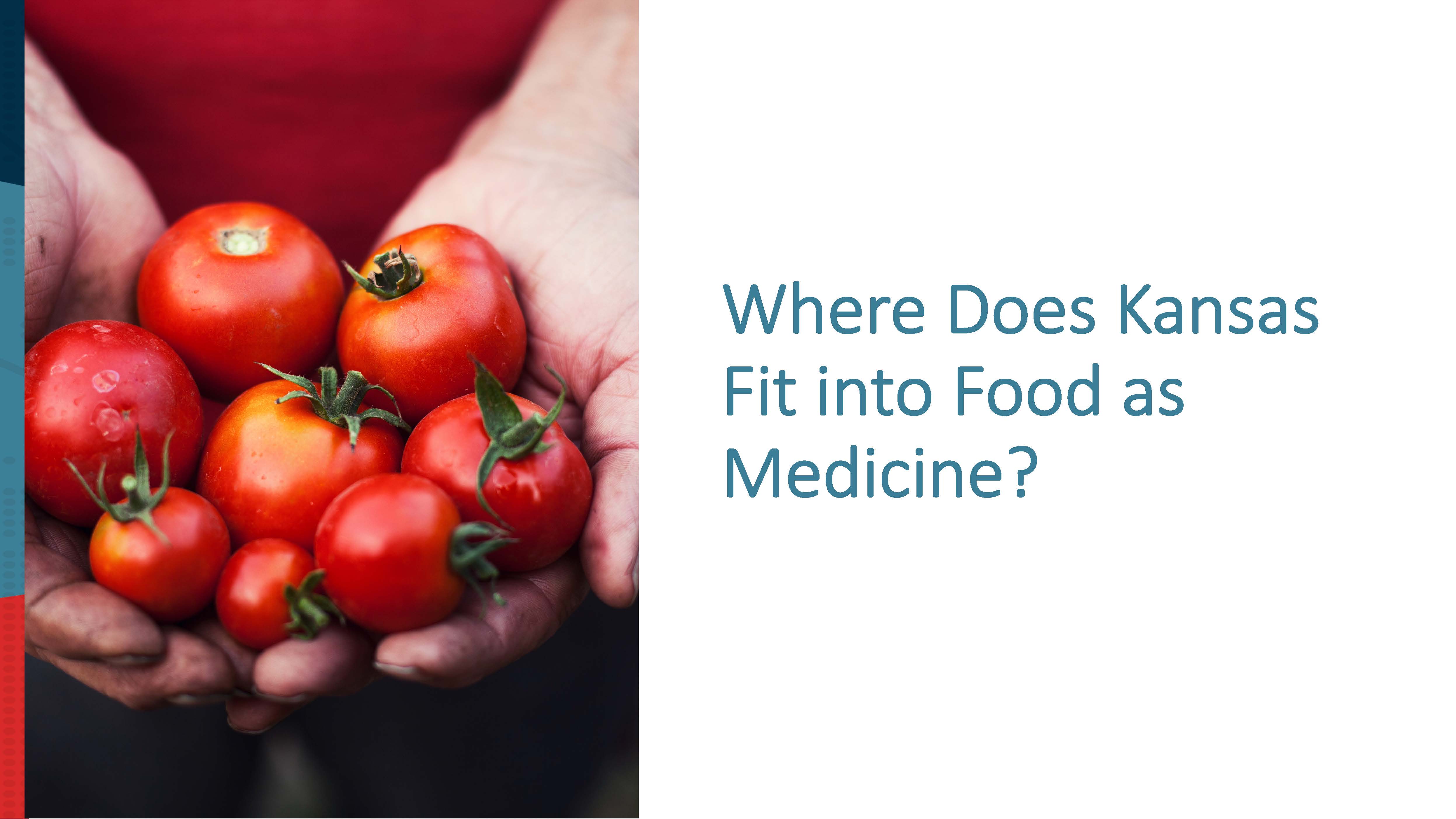
1:07.56
Presentations
To learn more about what’s happening with Food is Medicine in the Kansas health clinics and where it fits into the national FIM movement, click below to view the full slideshows from our presenters at the March 30-31 Food is Medicine Learning Collaborative:
- Sunflower Foundation's health clinic partners in Food is Medicine provide "Views from the Field."
- The Food is Medicine Evaluation Team provides an update on the implementation of the program in the Kansas health clinics.
- The Gretchen Swanson Center for Nutrition talks about where Kansas fits into the Food is Medicine movement.
- Trina Ragain and Marianna Wetherill provided a national perspective on Food is Medicine.
